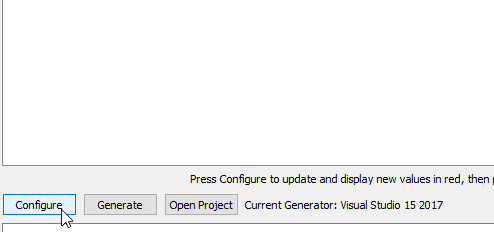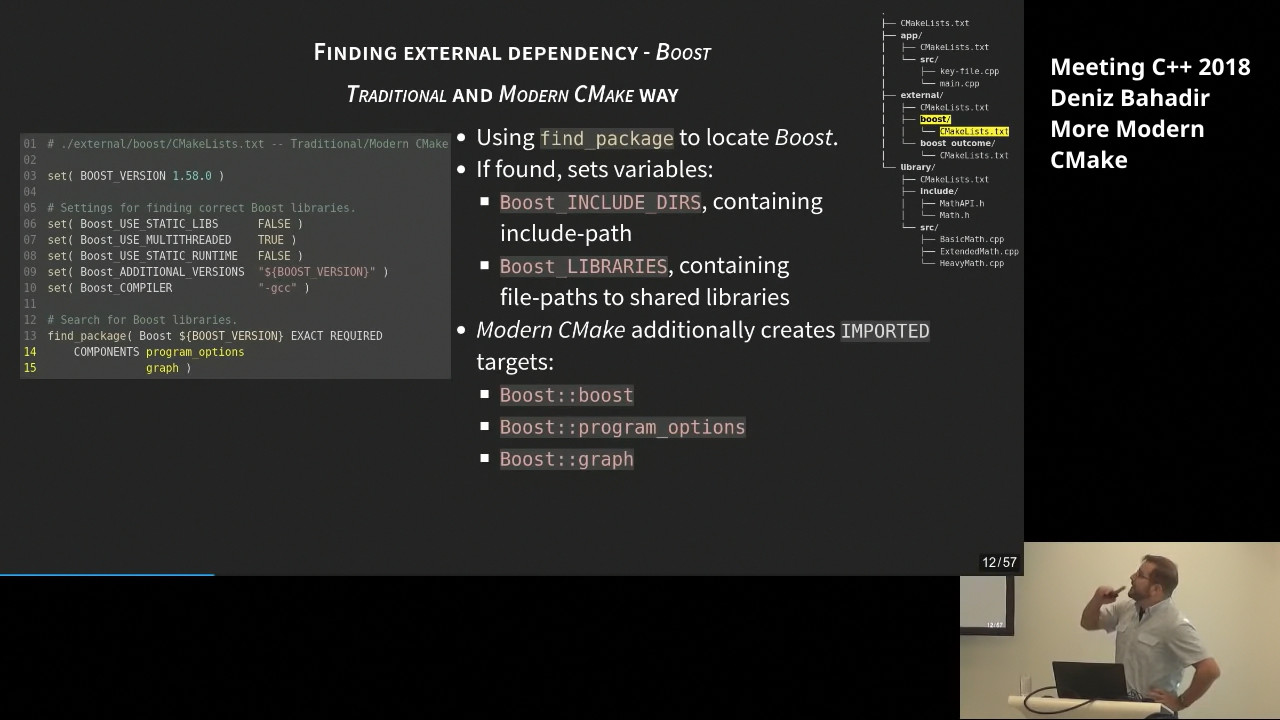

set(CMAKE_CXX_FLAGS_INIT "-Werror -Wall -Wextra -Wpedantic") Hardened diagnostics for your unit tests. Toolchain files make cross-compilation easier, but they have other uses: When you want to generate a build system with this toolchain, specify the CMAKE_TOOLCHAIN_FILE parameter on the command line: mkdir android-arm-build & cd android-arm-buildĬmake -DCMAKE_TOOLCHAIN_FILE=$(pwd)/./arm-linux-androideadi-gcc.cmake.
#Cmake set default generator
source afterwards, it will use the generator as specified in the CMAKEGENERATOR variable in the. The variable CMAKEGENERATOR is stored in the cache, though. source (without -G) the default generator is used. (You can find an example Linux cross-compiling toolchain file here.) set (CMAKEGENERATOR 'Ninja' CACHE INTERNAL '' FORCE) in CMakeLists.txt, then in the very first run of cmake. arm-linux-androideadi-gcc.cmake with global toolchain settings: set(CMAKE_CXX_COMPILER arm-linux-gnueabihf-g++) GCC on GNU/Linux or MSVC on Windows) without any additional flags.Ĭreate a file, e.g. And your program should build for the native platform with the default toolchain (e.g. Ideally, there should be no compiler/linker flags in your CMakeLists.txt files - even within if/ endif blocks.

#Cmake set default how to
instructions on how to organise source files into targets - expressed in CMakeLists.txt files, entirely toolchain-agnostic and.This ensures that there is a clean division between:

The preferred way to specify toolchain-specific options is using CMake's toolchain facility. The easiest one (not clean, but easy and convenient, and works only for compiler flags, C & C++ at once): add_definitions($ ) Suppose you want to add those flags (better to declare them in a constant): SET(GCC_COVERAGE_COMPILE_FLAGS "-fprofile-arcs -ftest-coverage") Please be aware that due to the evolution of CMake since the writing of this answer in 2012, the majority of the recommendations provided here are now obsolete or no longer recommended, with improved alternatives available.


 0 kommentar(er)
0 kommentar(er)
